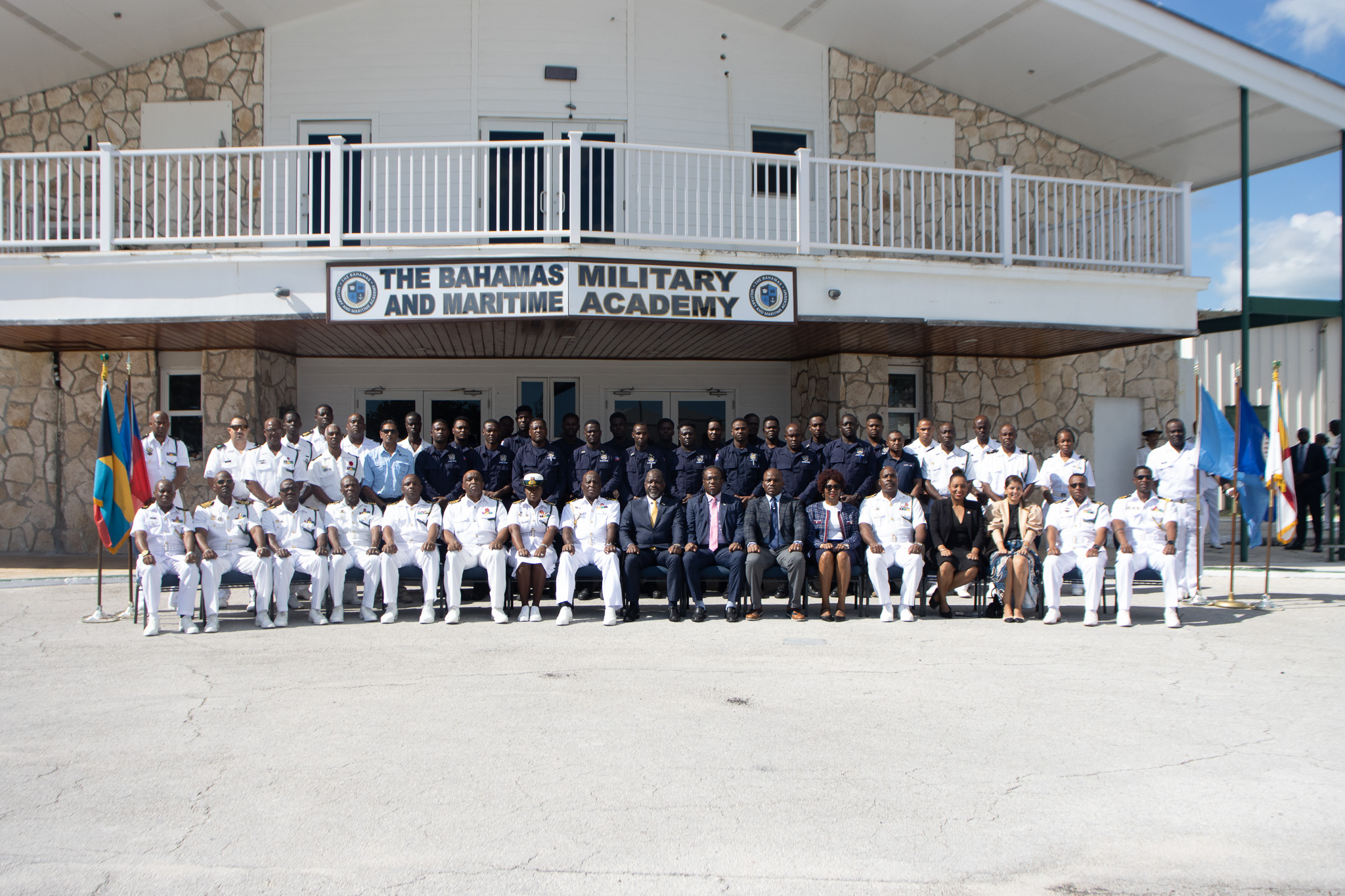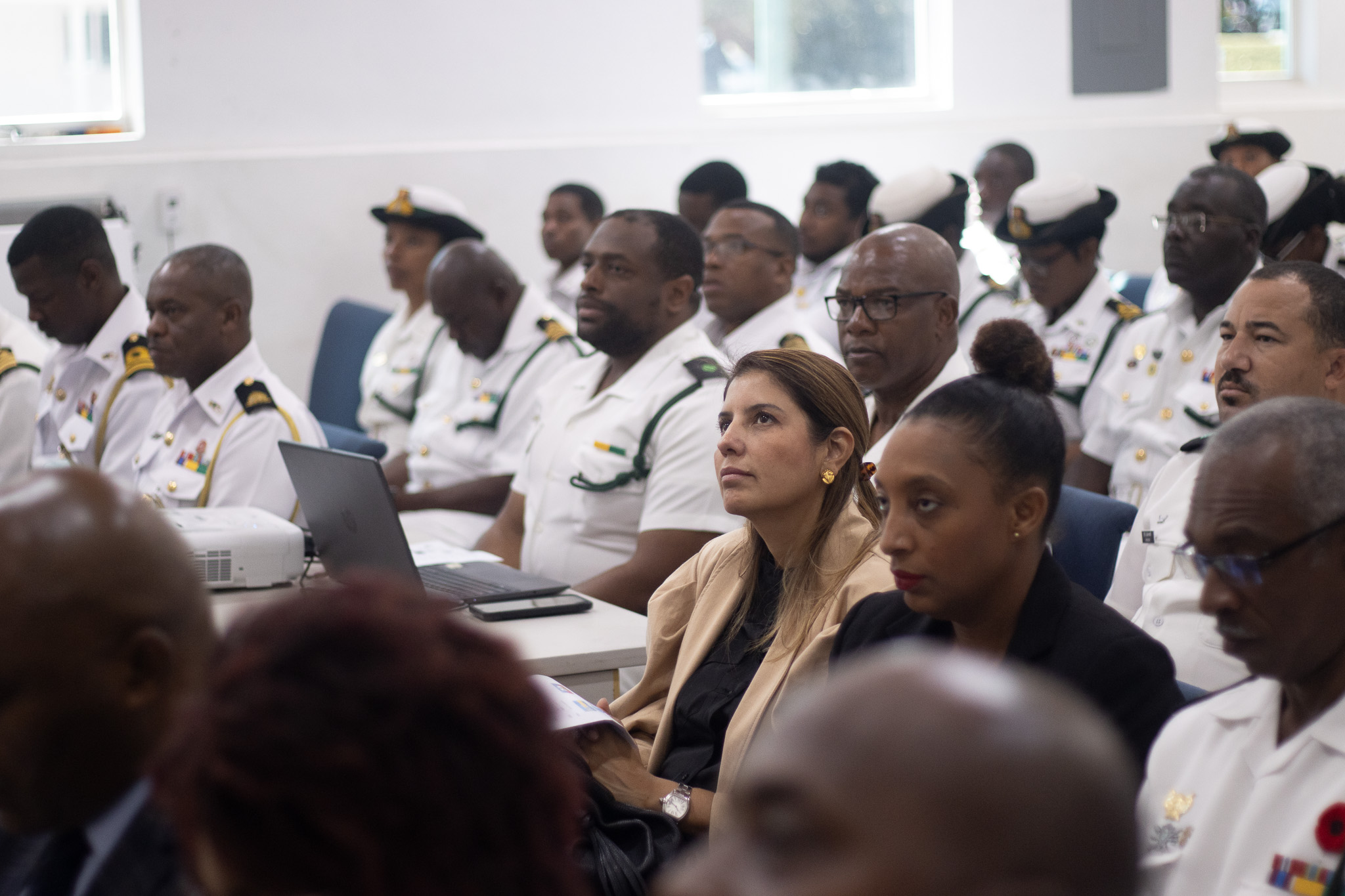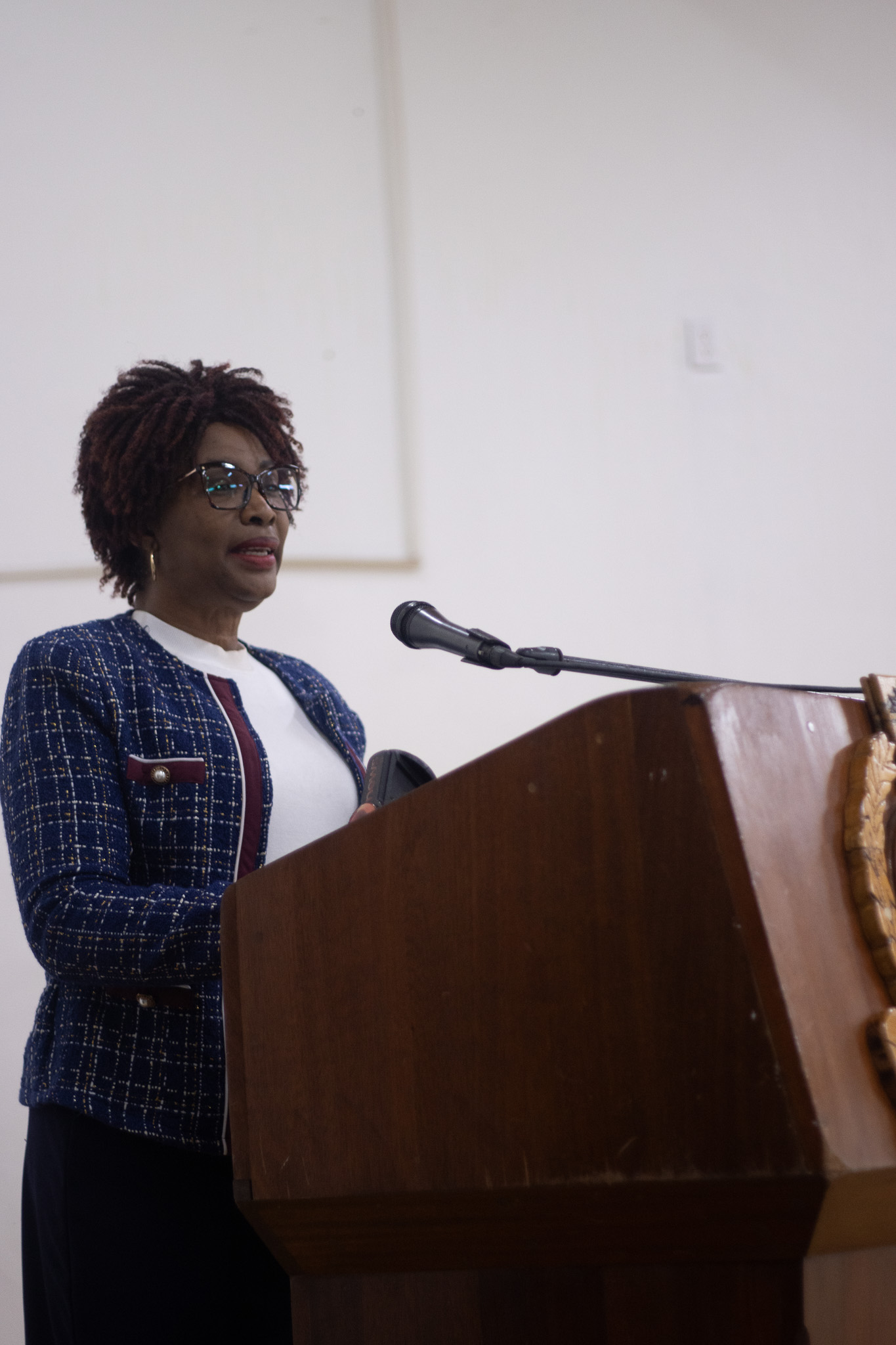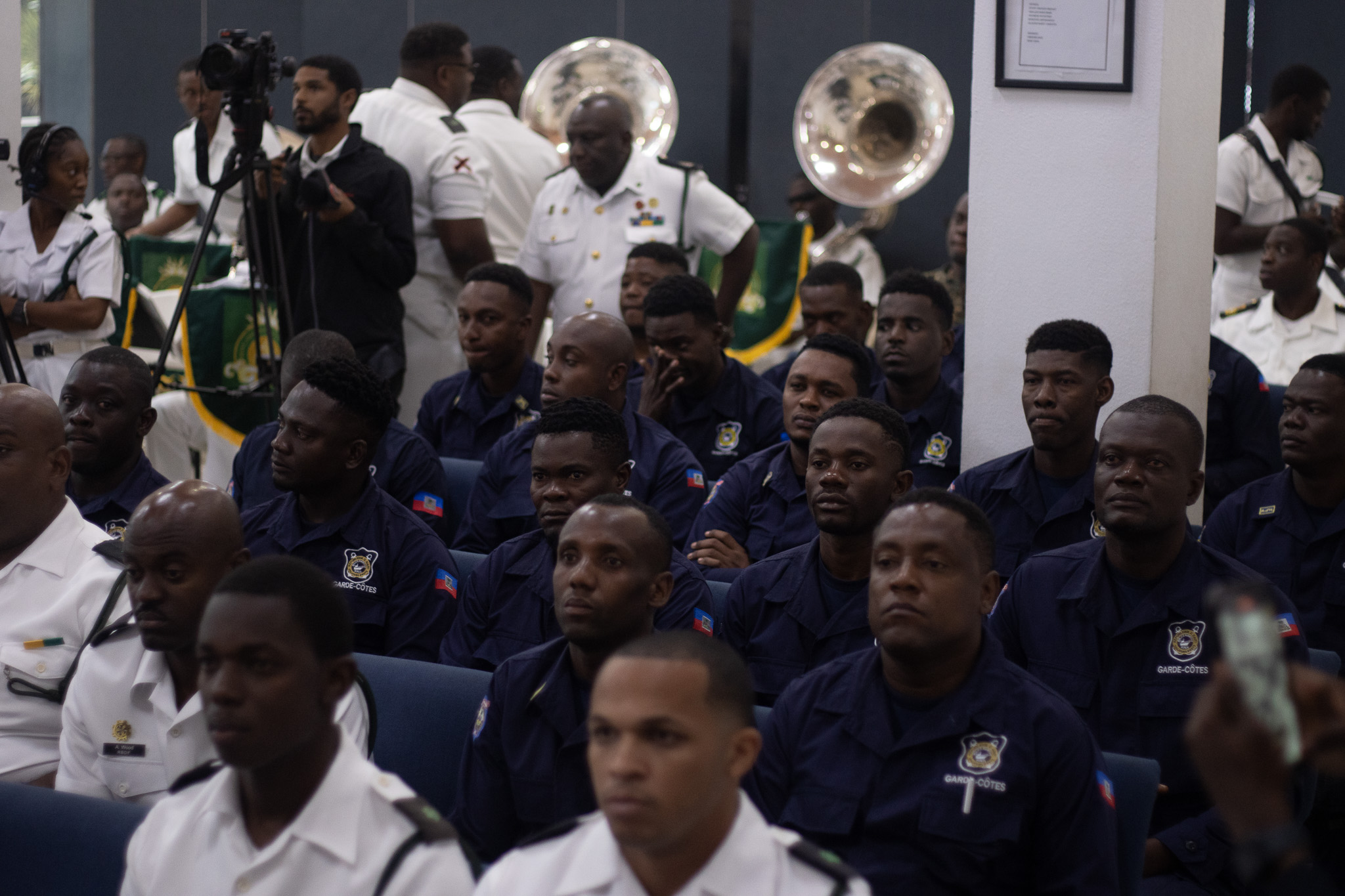THE BAHAMAS LAUNCHES UNODC SMALL-BOAT LAW ENFORCEMENT COURSE AND OAS CONTAINER RUMMAGE TRAINING
Coral Harbour, New Providence, The Bahamas. 20th November, 2025. The Ministry of Foreign Affairs is pleased to announce the successful launch of two major capacity-building programmes supporting the strengthening of the Haitian National Police (HNP): the United Nations Office on Drugs and Crime (UNODC) Small-Boat Law Enforcement Training and the Organization of American States (OAS) Cargo and Container Rummage Course. These initiatives form part of a broader joint training programme led by The Bahamas in collaboration with the HNP, the Royal Bahamas Defence Force (RBDF), the OAS, and UNODC—with generous financial support provided by the Government of Canada.
The dual training programmes are being conducted from 18–29 November 2025 at Coral Harbour Base. They reflect The Bahamas’ commitment to advancing sustainable, Haitian-led solutions to the evolving security crisis, in accordance with OAS Resolution AG/RES. 3039 (LV-O/25) and UN Security Council Resolution 2793 (2025). Both resolutions underscore the urgency of strengthening Haiti’s law-enforcement capabilities, especially in the maritime and border-security domains.
The Small-boat law enforcement course, delivered jointly by RBDF and UNODC’s Global Maritime Crime Programme (GMCP) focuses on enhancing the maritime policing skills of the Haitian Coast Guard-HNP officials through scenario-based exercises, tactical vessel handling, interdiction procedures, and coordinated operations with partner agencies. This training directly supports Haiti’s ability to counter illicit trafficking networks, secure its coastline, and contribute meaningfully to the Haiti Gang Suppression Force (GSF) transition mandated by UNSCR 2793.
At the same time, the OAS “Train-the-Trainer” Cargo and Container Rummage Programme is equipping HNP and Haitian Customs officials with advanced inspection and detection skills essential for combating contraband, weapons trafficking, and transnational organized crime within Haiti’s ports of entry. Delivered in French, this programme provides long-term instructional capacity by enabling participating officers to replicate the training in Haiti.
Both courses are supported by critical operational contributions from the Royal Bahamas Defence Force, the Bahamas Customs and Excise Department, the Port Department, and the Royal Bahamas Police Force, ensuring a fully integrated training environment aligned with international standards.
The Ministry extends sincere appreciation to the Government of Canada for providing the financial support that made both the UNODC-GMCP and the OAS cargo-security training possible. This contribution demonstrates Canada’s continued leadership within the Standing Group of Partners—alongside Kenya, Jamaica, El Salvador, Guatemala, and the United States—in supporting hemispheric stability and Haiti’s path toward institutional recovery.
The Ministry emphasizes that this initiative is not a short-term intervention, but a strategic investment in rebuilding Haiti’s security institutions through capacity-building, operational cooperation, and sustained regional engagement.
The Ministry of Foreign Affairs reaffirms The Bahamas’ steadfast commitment to supporting Haiti in building a stable, resilient, and self-sufficient security framework—one that reinforces regional security and contributes to lasting peace and development for the Haitian people.
Note to editors:
For more information about UNODC’s Global Maritime Crime Programme (GMCP), please visit https://www.unodc.org/unodc/piracy/latin-america-and-the-caribbean.html.








